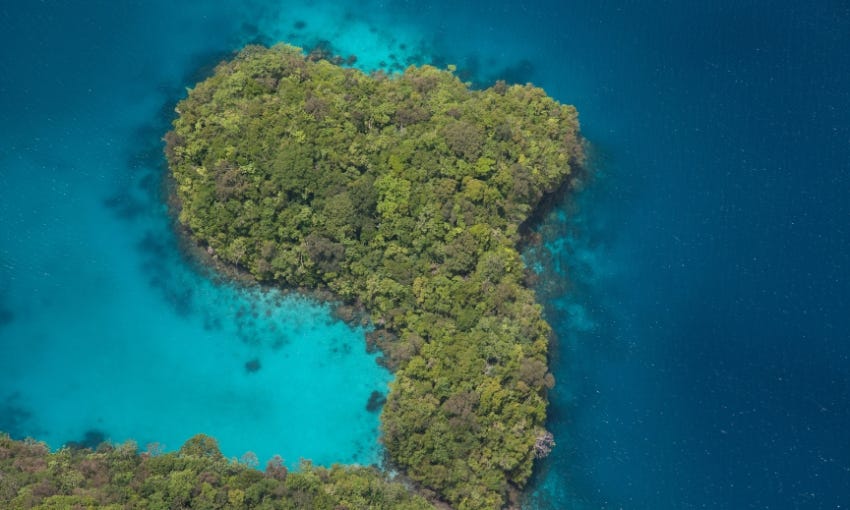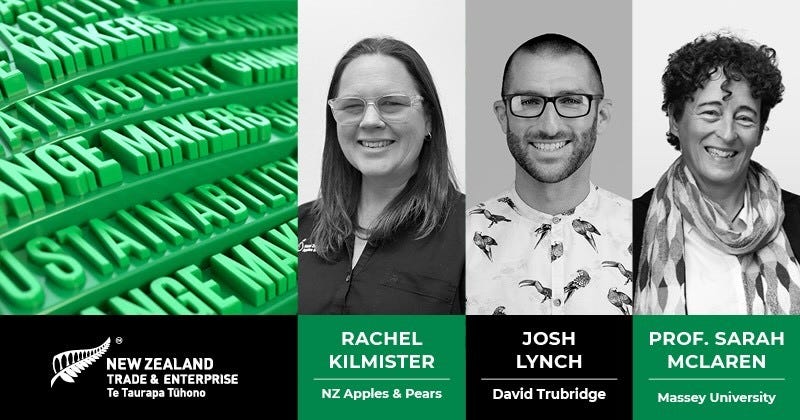Our common language was ‘care’
Landmark Pacific report urges us to look past Cop29 chaos and centre the grassroots.
Kia ora, welcome to Future Proof. Thanks for joining me. This week, homegrown fusion and huge coral. But first: what’s been happening at Cop29?
Yes, it’s that time of year again, when the world gathers for a climate talkfest. Toby Manhire has compiled a beginner’s guide to all the United Nations climate hullabaloo at Baku, Azerbaijan.
Host nation under scrutiny
Why Azerbaijan, you might be wondering. The decision to host the gathering in a petrostate with a poor human rights record has come under scrutiny – one political scientist labelled it “an Orwellian tragedy”. Ahead of the summit, Azerbaijan cracked down on critics and promoted fossil fuel deals, and in the first week the president called natural gas “a gift from God”. The planet-heating fossil fuel is actually a curse for many people, Maria Armoudian explains on The Spinoff, in a piece exploring how climate and human rights are intertwined. Worth a read as we head into the final week of negotiations.
Money on the mind
This year, climate finance is a big focus: we’ve reached the deadline to agree on new climate aid targets. Potentially trillions of dollars for developing countries impacted by climate change are on the line, but negotiations have stalled and some are worried that this could be the first ever climate summit to end without a deal. Grist has a little quiz you can take to see which country’s climate aid proposal you most closely align with (me: Kenya).
In the Pacific, climate finance is front of mind too. Samoa, Tonga and Fiji are facing debt crises fuelled by climate disasters, according to a new report presented at Cop29, Newsroom’s Marc Daalder reports. Other Pacific islands could also find themselves facing a rising tide of debt if climate finance continues to come in the form of loans that need repaying, rather than grants.
“We have to be more strategic and more human as well when we think about climate finance,” says Steven Ratuva, professor at the University of Canterbury. “We’re talking a lot about increasing the size of the cake. For me, it should be, let’s talk about the recipe of the cake. Will it actually benefit those who consume it eventually?”
Climate aid delivered as loans isn’t the only problem, he says. It’s also been too focused on mitigation, rather than funding sorely needed adaptation to build resilience. And not much of what’s promised actually reaches people on the ground.
Centring Pacific perspectives
Ratuva co-led a landmark Pacific Ocean Climate Crisis Assessment with Awnesh Singh from the University of the South Pacific, assembling more than 100 Pacific scholars to canvas climate finance, biodiversity, water and food security, mobility, and more. The resulting 700-page report was launched at Cop29.
“It deals with the experiences, the reflections, the historical knowledge and Indigenous knowledge of people on the ground,” Ratuva says. It’s these grassroots stories we should be looking to, not just latching onto the big global Cop narratives, he reckons. “How they have responded to this using their knowledge and innovation is quite significant in terms of building up resilience over time.”
A mangrove forest planted 20 years ago in Fiji is protecting the village of Malawai. The wantok system in Papua New Guinea and other parts of the Pacific provides a social safety net in times of crisis. Remote communities in Tonga are reclaiming canoe (popao) carving practices to boost food security.
“Our families understand our land and ocean, and our land and ocean understand us, and it is like we have a common language. Our common language was ‘care’; we care for one another,” one community participant from the Cook Islands told the report authors.
It’s an opus that flips the Pacific climate narrative of “vulnerability” into empowerment and resilience. Many of the report’s contributors are young students, Singh says, “which gives us pride in the future of our climate warriors.”
Learn how life cycle frameworks can enhance your export business
Join our Sustainability Changemakers webinar on 27 November to better understand your product's environmental impact and make smarter decisions for the global market. You’ll be guided through the essentials by industry expert Sarah McLaren and hear practical insights from successful New Zealand companies that have incorporated life cycle thinking into their products, across manufacturing, food and consumer goods. Register here to secure your free spot.
New Zealand company on nuclear fusion mission
A Kiwi start-up is pursuing the “holy grail” of near-limitless clean energy: nuclear fusion power. They recently achieved a milestone by creating and confining plasma, which can then be used to spark the nuclear fusion reaction (which is what powers the sun). Overseas researchers successfully ignited a world-first fusion reaction that released more energy than it used back in 2022. This New York Times article provides an interesting overview of the “wild west” of fusion start-ups, and when (or if) we might expect fusion to start powering our lives.
What does a second Trump presidency mean for the climate?
He’s called global warming a “scam” and promised to extinguish climate policies in the US, but how much damage will president-elect Donald Trump actually achieve over the next four years? Some analysis has suggested that when it comes to renewable energy – boosted significantly by Biden’s Inflation Reduction Act – the market momentum might be slowed, but not snuffed out. Nonetheless, the climate-denier-in-chief puts a lot of US progress in jeopardy. In contrast, here’s an albeit Australia-focused look at 10 reasons why Trump won’t be able to completely derail global climate action.
Support longform journalism in New Zealand at The Spinoff
Joel MacManus's longform investigation into the urgent race to solve homelessness in Aotearoa is the kind of vital journalism we can only do with support from Spinoff members and donors. If it matters to you, and you're able to, please donate or become a member today.
More stories
Bamboo vs electric toothbrush: which is more sustainable? (BBC)
Manaaki Kaimai Mamaku has launched a digital platform to connect businesses interested in investing in conservation with on-the-ground projects. (Bay of Plenty Times)
More than 10,000 homes could become uninsurable by 2050 as climate risks escalate. (RNZ)
Planet-heating emissions from private jet use have soared by 50% since 2019. (The Guardian)
Paris’s new climate plan: by 2030, drop speed limits, repurpose traffic lanes, and replace 60,000 parking spots with trees. (Bloomberg)
Can you decouple carbon emissions from a growing economy? Yes – but there are limits. (Anthropocene Magazine)
Bad news: we’ve probably already hit 1.5°C of warming, we’re still burning more fossil fuels than ever before, and this year is shaping to be the hottest on record. (ABC, The New York Times, The Guardian)
Meet Colombia’s recycling influencer with hundreds of thousands of followers. (The New York Times)
To finish this issue, check out this huuuuuge beauty. At 34 metres across and 5.5 metres tall, it’s bigger than a blue whale and is the world’s largest known coral. Discovered in the Solomon Islands, coming across the behemoth was like seeing a "cathedral underwater,” diver Manu San Felix told the BBC. "It's very emotional. I felt this huge respect for something that's stayed in one place and survived for hundreds of years.”
Keep clam and coral on,
Ellen
Future Proof is looking for a sponsor!
Connect your brand with an insightful exploration of environmental news, reaching influential readers committed to sustainability and staying informed about the state of our natural world. Contact commercial@thespinoff.co.nz to learn more.
Got some feedback about Future Proof or topics you’d like covered? Get in touch with me at futureproof@thespinoff.co.nz












